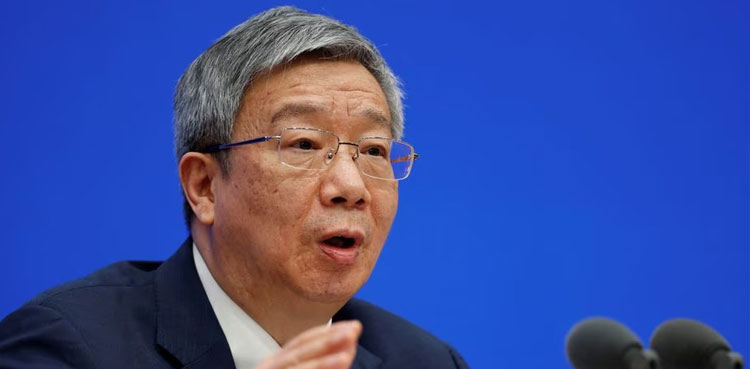
BEIJING: China unexpectedly kept its central bank governor and finance minister in their posts at the annual session of the parliament on Sunday, prioritising continuity as economic challenges loom at home and abroad.
President Xi Jinping, who has been installing allies in key roles in a government reshuffle as he begins a third five-year term, broke with convention to retain Yi Gang, 65, as governor of the People’s Bank of China (PBOC) and Liu Kun, 66, as finance minister. Both men have reached the official retirement age of 65.
Across the slate of appointments, there were fewer changes than anticipated, with most cabinet ministers keeping their posts. However, further announcements are expected in coming weeks as China implements a reorganisation of its fithe nancial regulatory structure and other government bodies.
“Opting for continuity in these critical economic roles suggests an emphasis on credibility and stability,” said Mattie Bekink, China director at the Economist Intelligence Corporate Network.
The government has set a 2023 economic growth target of around 5%, up from 3% last year, which was among the weakest performances in decades.
China’s statistics bureau head, Kang Yi, told the parliamentary session on Sunday that China’s economy still contains deep structural “contradictions” and “problems”, according to state media.
Chinese policymakers face the challenge of getting the economy back on track after three years of COVID-19 restrictions, weak consumer and business sentiment and increasingly adversarial relations with the West, with many global firms looking to hedge their China exposure.
Also on Sunday, China as expected appointed Li Shangfu, who is sanctioned by the United States over the purchase of Russian weapons, as defence minister, and named a slate of four vice premiers, led by Ding Xuexiang, who has long served as Xi’s chief of staff.



0 Comments